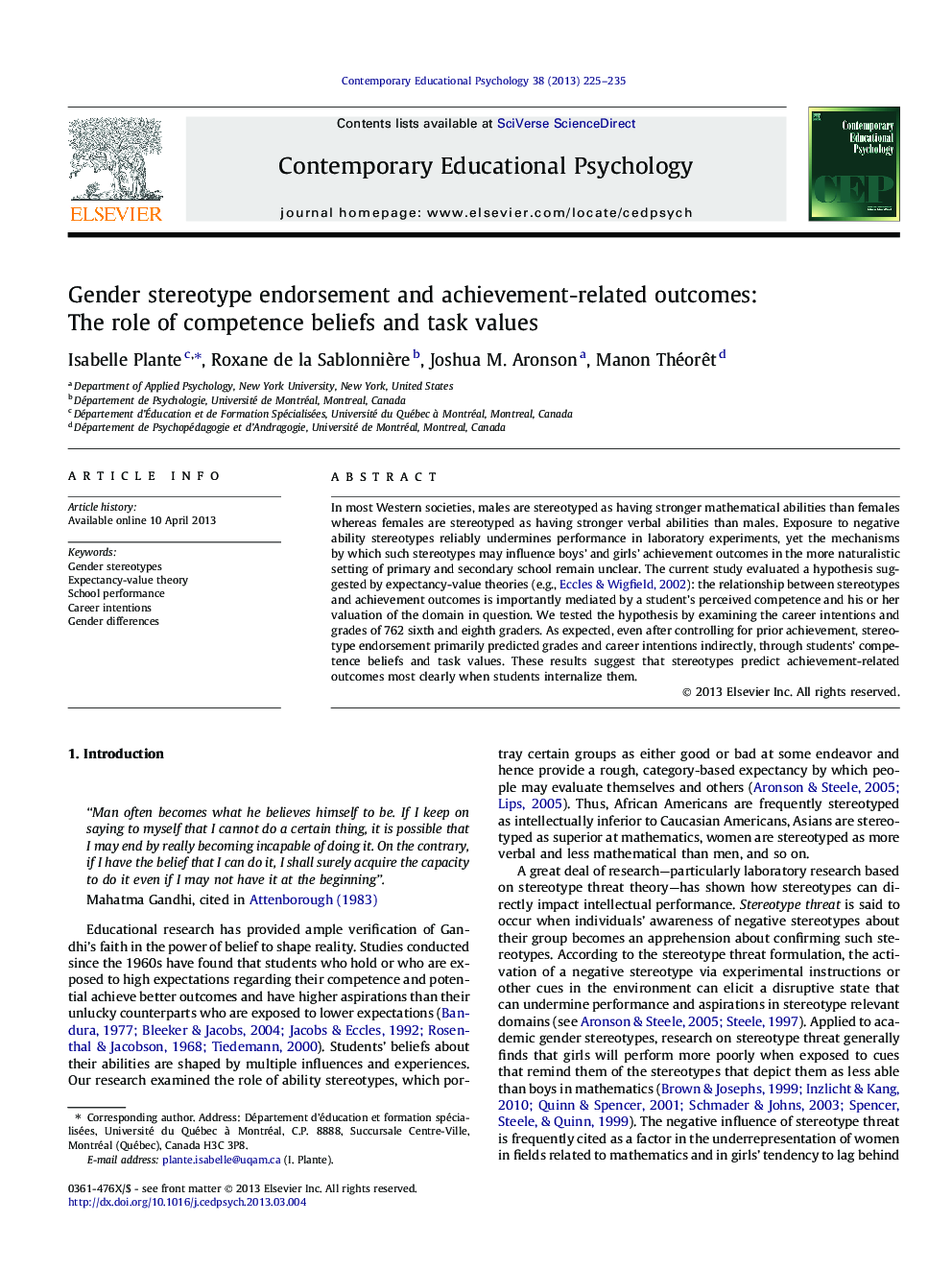| کد مقاله | کد نشریه | سال انتشار | مقاله انگلیسی | نسخه تمام متن |
|---|---|---|---|---|
| 352601 | 618603 | 2013 | 11 صفحه PDF | دانلود رایگان |
• We examined the mechanisms by which ability stereotypes influence school outcomes.
• We focused on both boys and girls and on the domains of math and language arts.
• Not all students think endorse stereotypes stating that boys are better at math.
• Stereotype endorsement primarily predicts grades and career intentions indirectly.
• Self-competence and task values mediate the stereotype-achievement outcome links.
In most Western societies, males are stereotyped as having stronger mathematical abilities than females whereas females are stereotyped as having stronger verbal abilities than males. Exposure to negative ability stereotypes reliably undermines performance in laboratory experiments, yet the mechanisms by which such stereotypes may influence boys’ and girls’ achievement outcomes in the more naturalistic setting of primary and secondary school remain unclear. The current study evaluated a hypothesis suggested by expectancy-value theories (e.g., Eccles & Wigfield, 2002): the relationship between stereotypes and achievement outcomes is importantly mediated by a student’s perceived competence and his or her valuation of the domain in question. We tested the hypothesis by examining the career intentions and grades of 762 sixth and eighth graders. As expected, even after controlling for prior achievement, stereotype endorsement primarily predicted grades and career intentions indirectly, through students’ competence beliefs and task values. These results suggest that stereotypes predict achievement-related outcomes most clearly when students internalize them.
Journal: Contemporary Educational Psychology - Volume 38, Issue 3, July 2013, Pages 225–235
